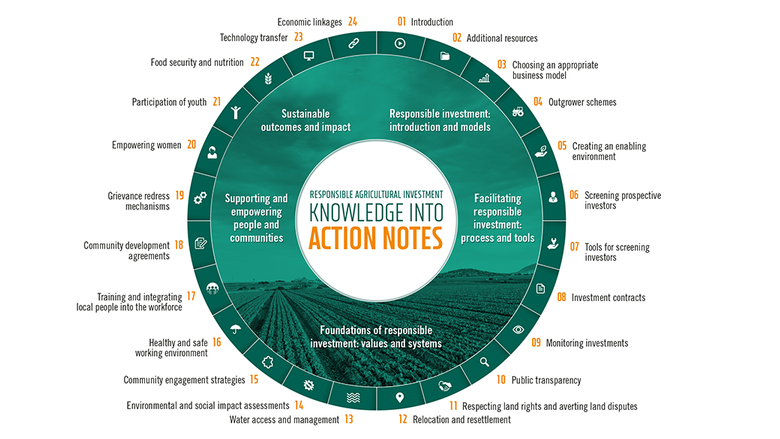In many developing countries, the share of agriculture and the food system in the economy is large and critical to the livelihoods of billions. It is thus essential to ensure that all investment in the sector, including by large-scale private investors, is attuned to local needs and operates responsibly, in line with international good practice. When done responsibly, boosting the productivity, profitability, and sustainability of agriculture can help fight poverty and help achieve several Sustainable Development Goals (SDGs), such as those aiming at ending hunger, ensuring decent work, and attaining gender equality.
The UNCTAD–World Bank ‘Knowledge Into Action Notes’ series provides evidence-based advice on the implementation of responsible agricultural investment. Each note provides information, tools, and guidance to governments, investors, communities, and civil society for their work in sustainable and responsible development in agriculture.
Large-scale investment by the private sector constitutes a part of countries’ development strategies. These notes seek to ensure that such investments are conducted responsibly, maximizing benefits and minimizing risks. Moreover, the practical knowledge they provide is also pertinent to smaller-scale investments and public projects.
The evidence used in the notes is drawn primarily from UNCTAD–World Bank field research. Insights from failure can be invaluable, especially because the various issues examined in the notes are wide-ranging.
Full details and publications of the joint UNCTAD-World Bank research program on responsible agricultural investment can be obtained at the Inter-Agency Working Group (IAWG) website. This site also provides an overview of all responsible agricultural investment related work and research programs and publications by the IAWG (FAO, IFAD, UNCTAD and the World Bank).

